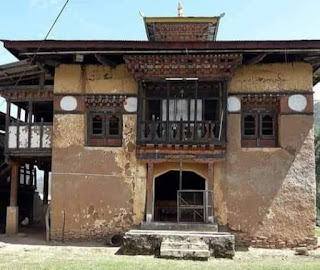Redefining MPs' Roles and Responsibilities: A Critical Analysis
The core of MPs' concerns revolves around the perceived lack of legal tools empowering them to hold both Central and Local Governments accountable, particularly in terms of oversight and scrutiny. Some argue that MPs often refrain from fully executing their roles and mandates due to electoral considerations, fearing a loss of votes in subsequent elections. This situation piqued my interest in exploring legal mechanisms that empower MPs.
In my investigation, I reviewed relevant provisions in the Constitution of the Kingdom of Bhutan, the National Assembly Act of Bhutan (2007), and the Oversight Manual (2017) to gain a better understanding of MPs' roles in democracy.
Article 10.2 of the Constitution of the Kingdom of Bhutan stipulates:
Parliament shall ensure that the Government safeguards the interests of the nation and fulfils the aspirations of the people through public review of policies and issues, Bills and other legislations, and scrutiny of State functions.
Further, Article 10.11 of the Constitution obligates:
Both Houses shall determine their rules of procedure, and the proceedings of each House shall be conducted in accordance with its own rules. The rules of procedure in each House shall provide for the appointment of Committees to carry out the business of Parliament.
Imbibing these Articles further into other Acts, Section 254 of Chapter 23 of the National Assembly Act of the Kingdom of Bhutan, 2007, reaffirms:
A member shall have the right to be provided with information by the Government and to inspect documents or any matter of relevance to the exercise of his or her Parliamentary mandates.
To execute parliamentary oversight effectively, MPs utilize various tools such as Interpellation/Question Hour, Committees, Public Hearings, Parliamentary Debates, Constituency visits, Calling of Attention, and Motion of Censure, among others. Section 65 of the Parliament Oversight Manual grants Parliament suo moto oversight powers, enabling it to initiate oversight activities independently.
While many oversight tools are utilized, some, like Public Hearings, are underutilized compared to established democratic practices. The Public Accounts Committee (PAC) actively conducts Public Hearings, yet public awareness remains limited due to inadequate media coverage.
Public Hearings are particularly valuable for investigating complex issues or those with limited accessible information (Oversight Manual 2017, pg. 8).
Earlier this year, the Economic and Finance Committee (EFC) of the National Assembly conducted a Public Hearing on contentious elements of the Mines and Minerals Bill 2020, receiving live coverage. This exemplifies the utility of Public Hearings in addressing diverse stakeholder perspectives and promoting transparency.
Sections 263 and 264 of the National Assembly Act address breaches of parliamentary privileges, outlining offenses such as non-compliance with parliamentary orders, providing false information, and obstructing parliamentary duties, with corresponding penalties.
In accordance with constitutional mandates and parliamentary laws, it is imperative for Parliament and its members to exercise oversight functions to enhance governance transparency and accountability. With increasing decentralization of powers, parliamentary oversight becomes crucial not only for scrutinizing the Central Government but also Local Governments through individual members and Standing Committees. Effective oversight can combat corruption, promote good governance, and optimize national resources for sustainable development goals.
By emphasizing parliamentary oversight, particularly in monitoring Local Governments amid increased decentralization, Bhutan can ensure efficient resource utilization and uphold principles of good governance.
The National Assembly, including its members, possesses significant empowerment through the 'Breach of Privileges' sections 263 and 264 of the National Assembly Act. These sections mandate individuals and authorities to respect members' privileges, with breaches including refusal to comply with the National Assembly or Committee orders, providing false information or documents, and engaging in actions such as assault, interference, bullying, or threats against members or personnel carrying out parliamentary duties.
The penalties for such breaches are substantial, as outlined in Section 310 of Chapter 27 of the National Assembly Act 2007, which imposes a maximum fine equivalent to five years of the daily minimum national wage rate for non-members committing offenses under Sections 264 and 265. Constitutionally and legislatively mandated, it is imperative for Parliament and its members to actively invoke oversight functions as necessary to enhance transparency and accountability in governance.
This includes not only scrutinizing the Central Government and its branches but also overseeing Local Governments through individual members and Standing Committees, particularly in light of increased decentralization of powers. Such interventions are essential for combating corruption, fostering good governance, and ensuring efficient utilization of the nation's limited resources. Specific attention to Local Governments is crucial given the trend of devolving more powers and financial resources, highlighting the importance of maintaining their integrity within the governance framework. This approach aligns with sustainable development goals and contributes to efficient national resource management.







Comments
Post a Comment